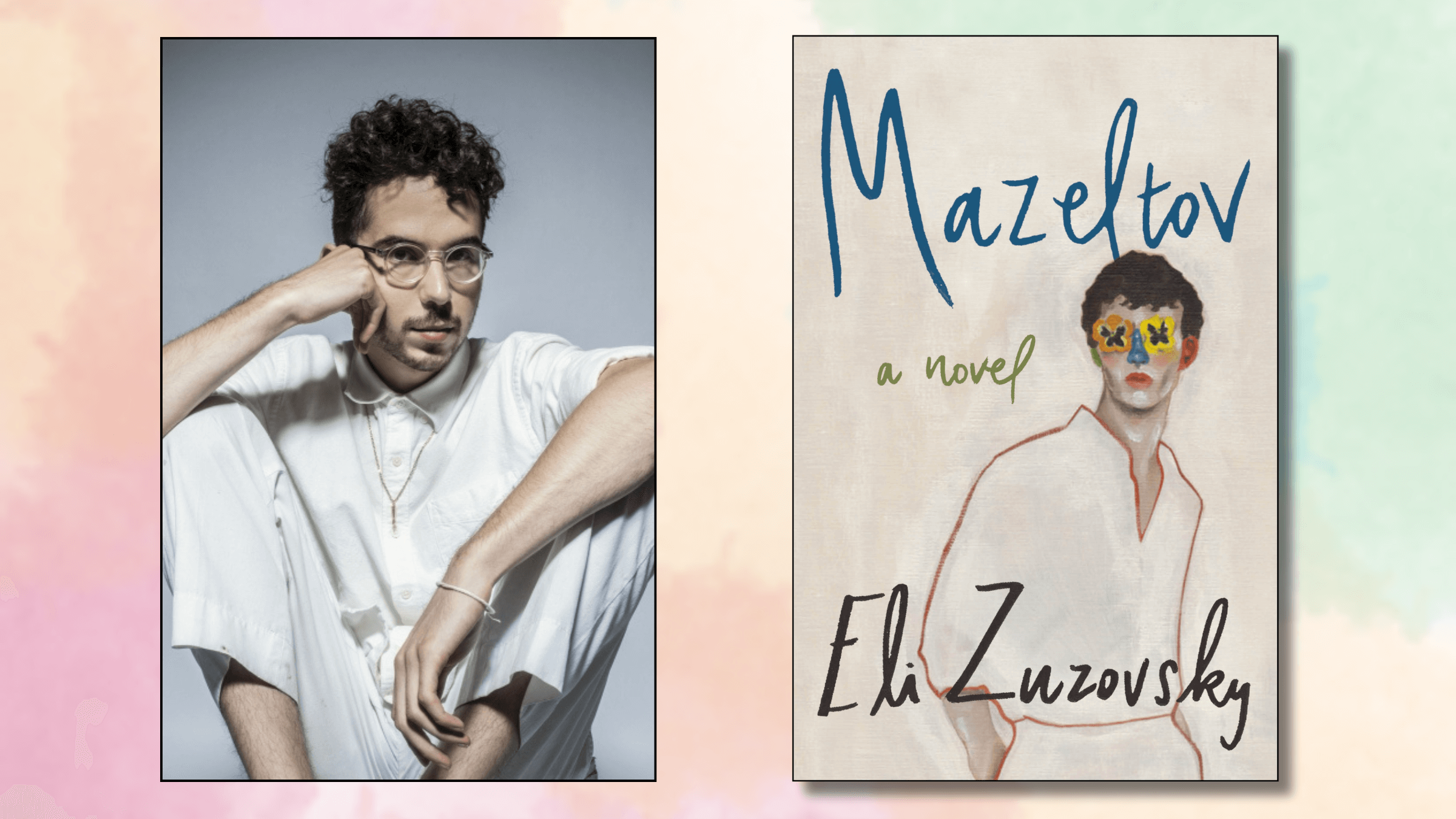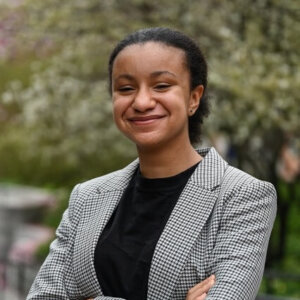In an Israeli boy’s coming of age story — tween angst, family dysfunction, and a bar mitzvah amidst rocket fire
Eli Zuzovsky’s debut novel ‘Mazeltov’ explores the turmoil of adolescence.

‘Mazeltov,’ Eli Zuzovsvy’s debut novel, tells the coming-of-age story of a young boy in Israel. Graphic by Eli Zuzovsky headshot courtesy of Henry and Holt/cover art by El Dibujo/Canva
To an already impressive CV that includes being a playwright, filmmaker, Rhodes Scholar, and member of the 2022 Forbes Israel 30 under 30 list, Eli Zuzovsky has added the title of author. His debut novel Mazeltov tells the coming of age story of Adam, an Israeli boy struggling with his sexuality and sense of self.
An expansion of his 2022 short film of the same name – which was shortlisted for an Israel Academy Award – the novel takes an non-traditional look at Adam’s life. The story is told out of order, jumping back and forth between Adam’s pre-pubescent years, his childhood, and the beginning of young adulthood. We see his life through his eyes, but also those of his parents, his best friend, his grandmother, his cousin Ben in the Israeli Defense Forces, a bar mitzvah DJ, and Khalid, a Palestinian poet who indirectly helps Adam confront his sexuality.
Less than 200 pages long and written in a sharp, engaging style, Mazeltov is a quick read. The book is a reflection on the human struggle for belonging and self-acceptance, and the author brings his characters’ issues to life beautifully – Adam’s Mémé reckoning with an unsatisfying life; his friend Abbie’s resistance to social norms while dealing with the fallout of her parents’ messy divorce; Adam’s desperate attempts to develop self-confidence. Each of Zuzovsky’s characters experience struggles one has encountered directly or indirectly in their own life at one point or another.
But the book’s brevity also works against it, lacking room to explore these characters – who hold a lot of narrative promise – beyond their tragedies. Adam’s battles with pre-pubescent angst and young adult aimlessness will spark at least a little familiarity in any reader, but he rarely experiences any emotion that isn’t pure anxiety.
What does Adam want with his life? Why is he so unsatisfied? We know what makes him anxious – seemingly everything – but what makes him happy? It doesn’t seem like he knows and while almost everyone at some point in their lives feels unmoored and unmotivated, it’s difficult to feel invested in a character who never invests in himself.
Zuzovsky’s attempted commentary on religion, politics, family, and sexuality, feels underdeveloped, especially when the book addresses the Israeli-Palestinian conflict. Zuzovsky approaches this issue twice: Khalil’s childhood memory of being harassed by a group of Israeli soldiers and (spoiler alert) when Ben gives Khalil a blowjob at Adam’s bar mitzvah. A novel does not have to be a thesis on every social issue, but throwing in a shock-value scene with no meaningful elaboration feels inappropriate.
In the closing paragraphs, Zuzovsky takes on the voice of the narrator, warning Adam about the uncertainties of life, but also promising Adam the chance to blossom and find joy as he grows older. After an abrupt and rushed final section, the last line of the book teases a future even more meaningful than the past: “Your new life is about to begin.”
As a reader, I felt teased, too, as if we were leaving Adam just before his life and he as a person were going to develop into something interesting.

















